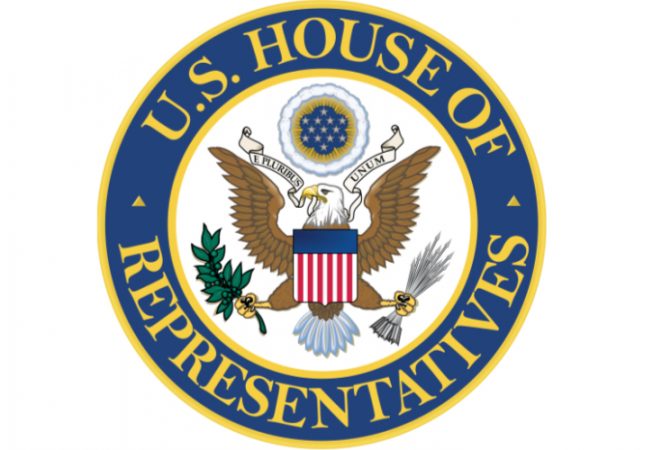The United States of America is a representative democracy. When citizens vote for delegates to the House of Representatives, they are choosing candidates to represent their interests in governing the country.
Why 435?
Currently numbering 435, the members of the US House of Representatives are elected to work on behalf of the citizens who voted for them. There is no magic to the 435 number; it was chosen in 1912 after Arizona and New Mexico became states.
In 1929, Congress passed the Permanent Apportionment Act to establish an automatic process to reallocate the 435 seats according to the most recent census. In 1910 each elected House member represented around 210,000 citizens. In 2020, each representative worked for an average of 760,000 citizens.
At any time, Congress could enact new legislation and increase the number of seats in the House of Representatives.
Your Representative Works for You (Well, Maybe)
Elected representatives are expected to follow the will of the citizens who elected them; however, they are not legally obligated to do so.
The temptations of political influence and monetary gain may lure representatives to vote in ways contrary, even harmful, to the will of the people. In addition, the sheer number of citizens a House member represents and the narrow margin needed for victory can leave up to half of a district’s citizens believing their wishes are ignored by their elected representative.
Along Came Citizens United
The Supreme Court Decision in 2010 Citizens United v. Federal Election Commission has increased disenfranchisement of everyday Americans.
The result of the Citizens United decision was that corporations and other organizations give unlimited amounts of money to campaigns, without disclosing their identity to the voters. Campaigns are financed by wealthy special interests whose unlimited spending allows them to drown out the voices of ordinary Americans.
Add in some Dark Money
“Dark money” is the name given to campaign funding that is from unidentified sources. Dark money groups keep the identity of their donors hidden and provide funds to super PAC’s. Theoretically, super PAC’s are required to be transparent and report fundraising and spending to the Federal Election Commission. But they simply pass along the name of the dark money group as a donor and the public is none the wiser about the special interest groups that provided the original donation.
Each election cycle sees record-breaking spending. Corporations and outside groups increased spending by almost 900% between 2008 and 2016. In the 2020 election, dark money accounted for over a billion dollars.
In addition, the Federal Election Commission has neglected to crack down on the illegal practice of candidates coordinating campaign expenditures with outside groups such as super PACs. This problem is bipartisan and the Campaign Legal Center has filed complaints against Democratic and Republican candidates who have violated illegal coordination laws.
Question Whether your Representative Works for You
I live in Pennsylvania’s 16th District. Rep. Mike Kelly and I share the same race and we are both over 65. The similarities end there.
Rep. Kelly is known for his defense of former president Trump. When Joe Biden won the 2020 presidential election, Rep. Kelly filed a lawsuit in an attempt to invalidate all mail-in ballots cast in the election. During the 2019 impeachment of Trump, Rep. Kelly claimed the effort was similar to the Japanese attack on Pearl Harbor.
Rep. Kelly has not participated in the 2024 Political Courage Test. Thus, Vote Smart – Facts Matter has examined Rep. Kelly’s statements, voting record and special interest group endorsements to infer his position on issues important to governance.
Conclusion: My Representative Does Not Work For Me
That conclusion comes from relevant information from the Vote Smart – Facts Matter site which includes:
- Rep. Kelly supports the decision of the Supreme Court to overturn Roe v. Wade.
- Rep. Kelly does not support the wealthy paying their fair share of taxes to help fund public programs.
- Rep. Kelly does not support campaign finance reform.
- Rep. Kelly does not support spending government funds to promote economic growth.
- Rep. Kelly does not support reasonable gun control legislation.
A look at Rep. Kelly’s website in support of his current campaign reveals issues statements that are long on generalities and short on specifics. He uses “we need” several times throughout the statements, but provides no specifics on what he plans to do to work for the people of his district. He says “I support” and “I am committed” and “Congress must.” He doesn’t mention the people of his district or what actions he will take to work for them.
Rep. Kelly’s support for overturning women’s health and reproductive freedoms is never mentioned. Women are half of his constituency and he does not bring up their concerns. He talks about taxes but only in generalities. He does not discuss campaign finance reform and the effect that corporations and political action committees and dark money have on our election outcomes.
In contrast, his opponent, Preston Nouri has listed priorities that address the day-to-day realities in the lives of the citizens, the children and the grandchildren of Pennsylvania’s 16th district. Mr. Nouri has specific issues categories to address economic justice, restoring our rights and reproductive freedom. He talks about kids and students and workers and small business people and the self-employed.
Preston Nouri is clear that he will work for you and your family as citizens of Pennsylvania’s 16th Congressional District. See Preston Nouri for Congress.


0 Comments